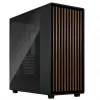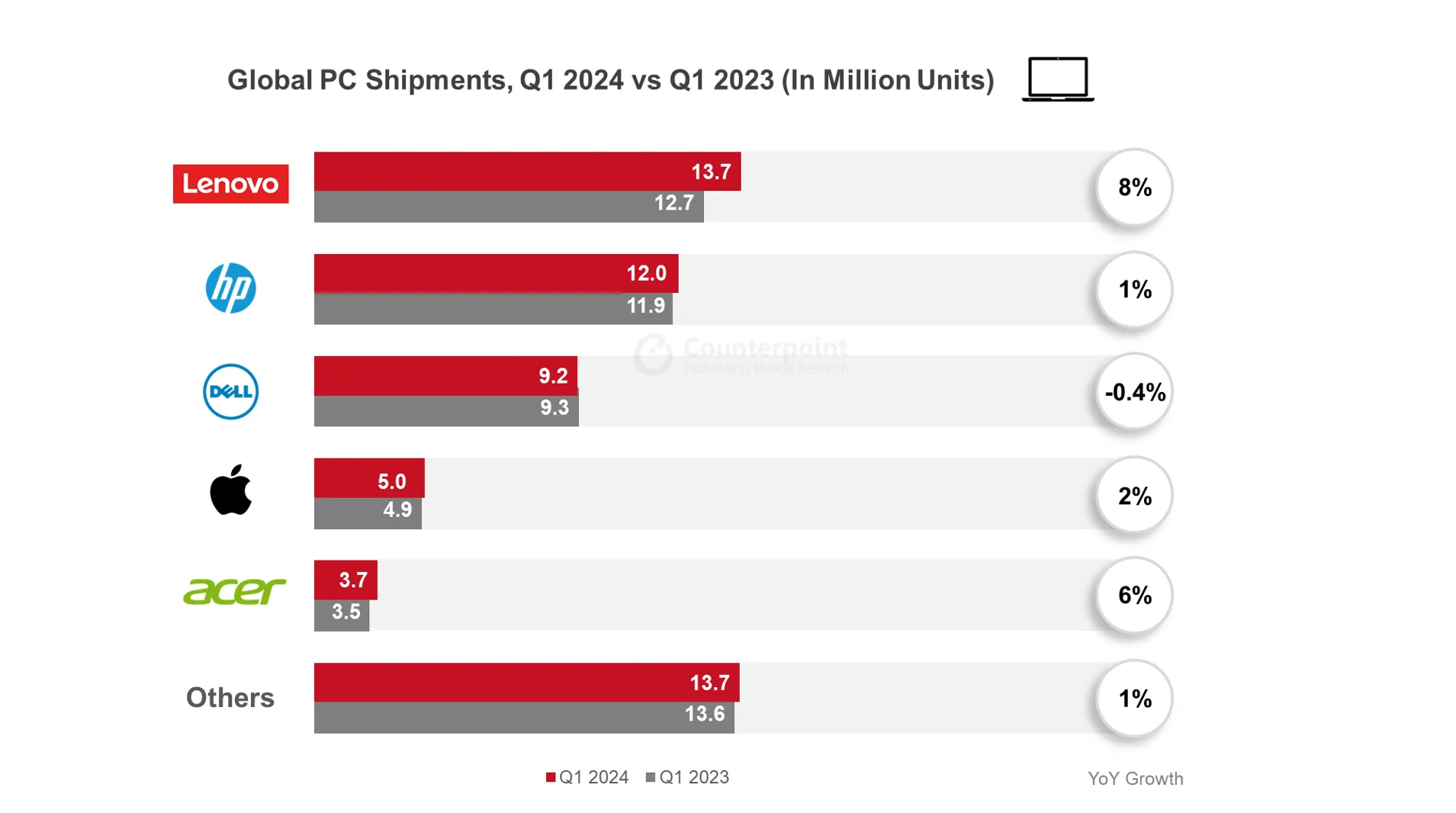
The global PC market, according to Counterpoint Research, witnessed a 3% year-on-year growth in the first quarter of 2024. This growth follows eight consecutive quarters of decline, attributed to a slowdown in demand and adjustments in inventory levels. The growth in Q1 2024 was from a relatively low base established in Q1 2023. It is anticipated that the PC market will maintain this upward trajectory throughout 2024, culminating in a 3% year-on-year growth by the end of the year. This forecasted growth is primarily driven by the emerging market for AI PCs, a recovery in shipments across various sectors, and a new cycle of device replacements. In Q1 2024, Lenovo's PC shipments increased by 8%, helping the company to restore its market share to 24%, up from 23% in Q1 2023. Competitors HP and Dell reported stable market shares of 21% and 16%, respectively, with expectations of growth driven by the North American market in subsequent quarters. Apple also reported a modest 2% growth, largely supported by its M3 base models.
The year 2024 is viewed as a pivotal period for AI PCs, including both desktops and laptops, with projections indicating that 45% of new laptops shipped during the year will be AI-enabled. William Li, a senior analyst, noted that the shipment and deployment of generative AI laptops are expected to accelerate significantly between 2025 and 2026. This growth will be supported by new processor platforms from chip vendors, alongside the development of new generative AI functions and applications.

The stabilization of inventory levels and the conclusion of a replacement cycle, which peaked during the COVID-19 pandemic, sets the stage for AI laptops to significantly contribute to the recovery of overall PC shipments in 2024. In the latter half of the year, manufacturers are expected to increasingly promote AI PCs as their flagship offerings, in anticipation of new system-on-chip (SoC) releases designed to enhance computational performance.
Source: Counterpoint Research


